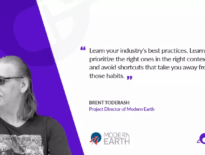In recent or coming days, you may be seeing news about WordPress and its community. Over the past two weeks, what began as a WordPress-community matter expanded fairly quickly to the wider tech community and will likely be moving into mainstream sources, and for this reason, some form of comment is warranted from us for the benefit of our clients.
I’ve considered myself a part of the WordPress community for over two decades while using, recommending, hosting, and building with WordPress – hundreds of projects, from microsites to complex business-critical applications. The community is in some turmoil at the moment, as news stories will suggest. On October 2, 2024, a large WordPress-focused web host, WP Engine, filed a lawsuit against WordPress co-founder Matt Mullenweg and his company, Automattic, which operates WordPress.com.1
If the lawsuit and potential fallout worry you, you’re not alone – but this is a “don’t worry” post. If we’ve recommended WordPress you in the past, I’ll explain why we aren’t changing that recommendation now despite the basis of the lawsuit, and what we’re watching for going into 2025.
Backstory & Complaint
The two companies involved each have revenue in the range of $400-500 million per year, and the issue is muddied by another site, wordpress.org, owned and run by Mullenweg personally and not by the WordPress Foundation which technically owns the trademark. Mullenweg oversees development of the WordPress project generally, with different leaders for each of three major releases per year. His “.org” site serves as a hub for the distribution and support of all things WordPress and is essentially a non-commercial though not a neutral environment.
The controversy begins with Mullenweg, who doesn’t feel that WP Engine voluntarily contributes enough to the open source WordPress project, and over some months, he attempted to get WP Engine to commit to doing so, presenting a term sheet to WP Engine demanding (among other things), 8% of its annual gross revenue be paid to Automattic or 8% of its employee’s time (or some combination) be contributed to the project in exchange for the use of the WordPress trademark. Automattic is a direct competitor to WP Engine.
WP Engine declined to negotiate, and carrying out a threat on September 20th, Mullenweg used his closing address at WordCamp US to publicly accuse WP Engine of being a bad actor (and worse), encouraging people to stop dealing with WP Engine.
Following Mullenweg’s talk, each filed “Cease and Desist” letters with the other. A tense week followed, during which Mullenweg blocked WP Engine’s access to the software repositories on wordpress.org. He wrote several public posts and did interviews attempting to explain and rally support for his position, acknowledging that he is using trademark law to achieve his objective. Generally speaking.
In the wake of these events, WP Engine formally filed suit, an outcome that was already looking inevitable. The suit lists 11 complaints, including libel, slander, interference, unfair competition, estoppel, and attempted extortion. There’s a lot to unpack, but those are the main points of fact. Straw polls suggest considerably more community support exists for WP Engine, and 159 people took advantage of a generous severance offer to leave Automattic if they weren’t aligned with its CEO.
Addressing Concerns
There are some fundamental reasons we’ve chosen to build with WordPress, and which remain in place to provide us with assurances through the kinds of turbulence which tend to raise concern especially among enterprise users.
Remembering back to 2003, one reason we began building websites with b2, the predecessor to WordPress, is the software license. There were actually three separate “forks”, or new branches of the b2 software – b2 Evolution, b2++, and WordPress (I tried them all back in the day). b2++ was later renamed WPMU (for “WordPress Multi-User”) and to a large degree maintained compatibility with WordPress themes and plugins. The two projects were eventually merged in 2010.
WordPress, like b2 before it, is open source software licensed under the GNU General Public License, or GPL. This license allows users to modify and redistribute the software, but bans them from changing the license to a more restrictive one. For this reason, the software has inherited the GPL terms from b2, and will always remain free to modify and distribute. Extensions (plugins) that rely on WordPress must also be licensed under the GPL.
Over the years, we have maintained confidence in Matt’s leadership of the technical aspects of the project, and this remains generally intact. Within the WordPress developer community, there are approximately 20 people who have authority to commit changes to the project, and a number of those are similarly capable of providing solid technical direction. Unfortunately, the current issues have revealed very significant shortcomings in the governance of the WordPress Foundation and raised concerns for many about Matt’s leadership in general.
Looking Ahead
Regardless of how the lawsuit proceeds from here and whatever its outcome may be, the WordPress community will be doing some reflecting and restructuring in the days, weeks, and months ahead. What I expect to come out of it fits generally into four areas:
- distribution of the software from multiple mirrored sources to remove overall access control from any one of them;
- greater certainty on the use of the WordPress trademark or discontinuation of its use;
- one or more “forks” of the project into different branches, each with a new name; and
- proper governance structures for oversight with meaningful dispute resolution policies in and for each of the above.
If Mullenweg continues to lead the project in the same role beyond the coming year, it will be either because the project has been forked and those who have lost confidence have moved elsewhere, or because the other three areas have been addressed to the satisfaction of the community.
Of the outcomes in these four areas, all but one are inherently positive. If the project is to continue under a single branch, the name of the software project may need to change for governance and trademark reasons, but without recommending it, at this point it would be surprising if WordPress were not forked again (as has happened in the past). One or more forks of WordPress in the current climate may have better than normal odds of gaining critical mass with a user base and contributors supporting it into the future, drawing groups of users away from WordPress.
I would hope that any new branches of the software will work to maintain compatibility and interoperability with each other and with WordPress, as this would strengthen the ecosystem as a whole. It is very possible to have multiple “flavours” of a CMS like WordPress that can go in slightly different directions with different project priorities while maintaining compatibility to a large degree with existing and future plugins.
An example of another project licensed under the GPL and one we’ve been following and using since the 1990s is the GNU/Linux operating system, where the variety of available Linux distributions (a much larger and more complex code base) illustrate how this can work, having different projects with different priorities and with software distributed from multiple mirrored repositories while maintaining a large degree of interoperability.
I would anticipate that 2025 may see longer than typical release cycles for WordPress (and/or its equivalents if that happens) as the community shifts, reorganizes, and strengthens itself. During that time, I do not have any genuine concern about ongoing security and bugfix releases.
Falling Forward
I know many people in the community, whose corporate participants include large agencies, hosts, and large enterprise users who have replaced proprietary or in-house custom software with WordPress. Many of those, like NASA and The New York Times, have a history of sharing software they write or modify, and have the resources to maintain, update, and release new versions, working together or independently.
The biggest short-term blow will be among enterprise users, as some will hesitate to adopt it until the dust settles. While the state of enterprise WordPress won’t look as rosy for a while, it doesn’ t change the underlying facts about the software’s suitability to a task.
Mullenweg has harmed his community, but communities tend to rally in times of stress or hardship. The people I’ve met or follow in the WordPress community today include a set of principled and highly capable individuals whom I believe will be able to help the community heal, improve, and thrive. The next year or so may see some uncertainty surrounding WordPress, but I expect the software it is today will continue to be the core of whatever we’re using in the future, by any name it may then have.
This is why, based solidly on the four freedoms of the GPL and the resilience of the WordPress community, we are not rescinding our recommendation of its use, nor making plans to change. As we’ve done in the past with other software or extensions, our clients can trust us to carry on watching carefully for any adjustments we need to make in order to ensure continued support and maintenance for the sites we’ve built and are building with WordPress.
- I won’t be delving deeply into the specifics, or linking to the primary documents, though I have reviewed them as I follow closely and engage in discussion. There are already a large number of summaries available with or without helpful commentary, and a few items are offered here for further reading to provide a sense of why posts like this are becoming necessary.
▸ State of Enterprise WordPress
▸ Things get nasty in lawsuit between WordPress.org and WP Engine
▸ Matt Mullenweg: ‘WordPress.org just belongs to me’ | The Verge
▸ When Benevolence Fades | Tedium
↩︎



